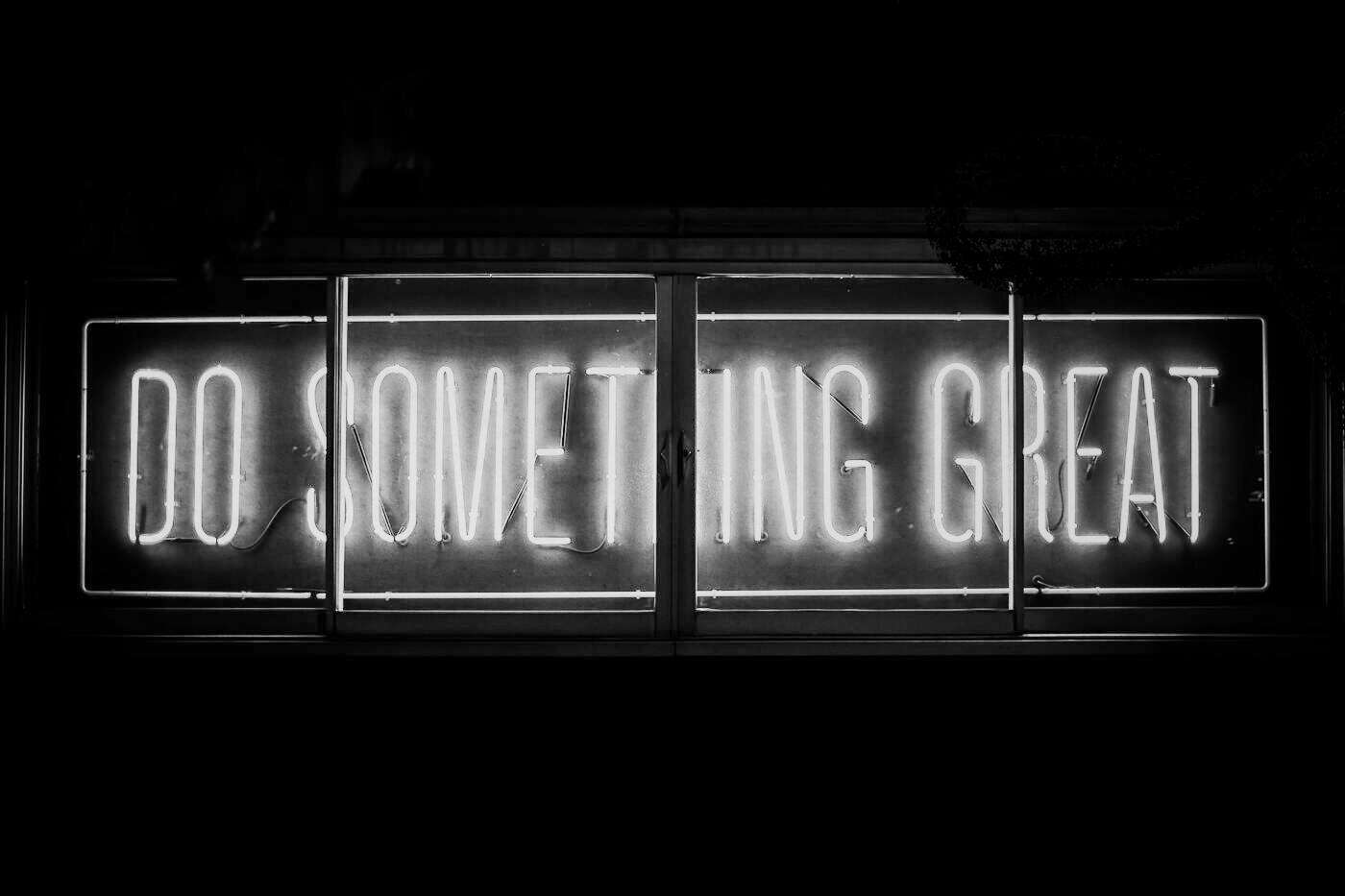
Sponsored By: Heyday
This article is brought to you by Heyday, an AI-powered research assistant that makes you smarter by automatically resurfacing content you forgot about.
Most people who are trying to change the world are really trying to change themselves.
Sometimes this works. If the change you want is a sense of purpose or the adrenaline rush of winning, then trying to change the world in order to change yourself is probably adaptive. That’s because changing the world can actually do the things for you that you’re hoping it will do.
But I don’t think this works for most people. That’s because they’re trying to change something about themselves that changing the world can’t actually change. They’re attempting a multi-decade bankshot that’s doomed to fail—but they won’t realize it until they actually achieve it.
I know because I am one of these people.
. . .
Let’s start by defining some terms.
When I say “people who are trying to change the world” I’m talking about the set of founders, investors, and startup-people who came up in the industry between 2010 and today. When I say “change the world” I mean starting large companies in order to make a big impact and put a dent in the universe. (There are, of course, infinitely many ways to change the world—you change the world just by existing—so I’m using this term in its sense as a slogan of a particular group of people, rather than in its more literal sense.)
There are at least two kinds of personal transformations that we are often looking for, but don’t get, when we set out to try to change the world:
- To feel respected
- To feel loved and connected
It might seem weird to argue that building a startup can’t satisfy your desire to be respected or to be loved and connected. Empirically, building something important in the world will increase the odds significantly that both of those will happen.
But there’s a difference, in my experience, between the “being” and the “feeling” of both of those states. In other words, you can be loved and respected and not feel it, or you might feel it but find it to be imperfect or incomplete, and be driven for ever more increasing amounts of it.
Retain More of What You Learn with HeyDay
If you like to write and research online, you know how easy it is to lose track of relevant content you’ve encountered throughout your day. Heyday fixes that with a browser extension designed to help you learn faster and save time. It will:
- Surface content from past research alongside relevant Google search results
- Overlay articles you are reading with relevant tweets, articles, and documents
- Curate a knowledge base that fills itself with content related to topics you’ve spent the most time researching
Try Heyday for free, no credit card required.
In my experience, this usually happens when your motivating desire to be loved or respected is subconscious rather than conscious. When that’s the case, both of these normal human needs turn into pathological quests that can’t be totally resolved by any future state of success or connection. But you keep trying anyway.
If you’re a person who is subconsciously driven by a desire for respect, the increasing levels of respect that you get from running a startup will only serve to fuel your desire for more respect. You’ll be terrified that the respect will go away, or that it was not deserved in the first place. Or, you’ll hyperfocus on any instances where respect wasn’t given and conclude that respect isn’t present at all.
Same thing for people who are secretly driven by a desire for love and connection. The increasing levels of power and admiration that you attain will feel like they’re getting you closer to the love and connection that you’re looking for. But you’ll be terrified to make any decisions that might threaten the power and admiration you have, because it will take away the prospect of “love” that you’re looking for. You’ll feel increasingly isolated and cynical as people get closer to you for the sake of proximity to power rather than because they actually like you.
Usually, in both cases you don’t recognize what’s going on; you just keep doubling down. Sometimes this works very well from a purely economic perspective—billion dollar businesses have been built this way.
But it’s usually dysfunctional, and empty-feeling. Respect addicts are constantly pushing people away who they feel have slighted them and trying to climb hierarchies without thinking much about why or whether it’s actually what they want. Love addicts are constantly afraid of becoming doormats to the people around them, and are terrified of interpersonal conflicts that might threaten the businesses they want to build.
When the startup achieves the goal and exits, they’re both left with existential distress and despair, which can only be filled by getting back on the merry-go-round.
. . .
Let me talk about about my own particular brand of fucked-upness on this subject. I think I have a weird, multi-colored, entangled version of both of these pathologies. I’ve come to see that I pursued startups in order to win respect, which I thought would win me love and connection. It’s a classic revenge of the nerds story:
In middle school, the kids I was around always thought I was smart. But I also felt like no one really liked me that much. I was constantly fading into the background. When something funny happened, no one turned to catch my eye. Plans were always made to hang out that didn’t involve me—that kind of thing.
So at some point I concluded that I would stop trying to be cool in the normal sense, learn how to program, get extremely rich and famous, and all of the people who ignored me in middle school would eventually want to come and hang out with me at my mansion.
It turns out this did win me respect. But then I lost the respect and started having panic attacks.
. . .
The thing about my subconscious desire for respect is that it didn’t seem to me like I wanted respect. In fact, I consciously told myself often that I “didn’t care what anyone else thought.”
But I also found myself driving as hard as possible to succeed at any cost so that everyone would eventually have to pay attention to me.
I first felt my sense of respect from the world increasing in college. I started building cool software products that were working, and separately got minorly internet famous. A YC company called 42Floors publicly offered me a job in a blog post that went viral and got covered in lots of news outlets.
I remember one night in particular after that happened I had this almost disembodied experience of feeling like there was now this “Dan Shipper” out there that people knew of—who they thought was awesome—but who was manifestly different from the Dan I knew myself to be.
Part of this felt powerful and safe. I could inhabit this other Dan Shipper and people would respect me. But part of it also felt even more vulnerable than before: what if people found out the truth? Of course, the thing about respect is that if you’re relying on the world to fill your need for it, it’s going to be pretty unstable. Which is what happened.
Around this time I started a startup, and sold it a few years later. When I sold it, all of the respect I’d been getting for years was gone, and I was lost in a black hole of low self-worth. I’d lost my identity, the thing that helped me feel that I mattered, and I no longer had the shield of being a founder to help prop me up. I immediately started having the aforementioned panic attacks, which didn’t go away until I started Every.
Through a lot of introspection and therapy, the whole experience made me conscious of, and then unglued me a little bit from, the idea that respect was what I was truly after.
I felt, oddly, like the respect that I got in building my last company hadn’t done the thing I expected it to do. When I was building the company, I felt like I mattered when I walked into a room, which was great. But for some reason it felt emptier and more unstable than I expected.
Starting a company had been an extremely difficult experience, and I felt drawn to doing it again. But I also felt like I needed a reason to make it worthwhile, and getting respect wasn’t it.
It was only after I started Every that I became aware of the fact that underneath my subconscious desire for respect, was actually a desire for love and connection.
. . .
The thing about my subconscious desire for love and connection is that it didn’t seem to me like I wanted love and connection. That’s the thing about these kinds of issues: in middle school you shove down what you really need, try to pursue it in some strange circuitous way, and then end up in therapy years later trying to piece everything back together.
The biggest clue that this is what was happening is how hard interpersonal conflict is for me. Wanting to be loved and connected to the people you work with is a great thing, but if you’re subconsciously addicted to it several things happen:
I often have a hard time expressing what I need in conflict, and I end up avoiding difficult conversations.
When conflicts do come up, I have a tendency to feel attacked and get defensive—because any small flaw in myself feels like it might mean I don’t deserve love.
I tend to keep people at arms length, and it’s very scary to bring them closer lest I someday have to have a conflict with them—or worse, need to fire them.
These issues were present in very strong form when Nathan and I first started working together. They’re much better now…but they’re still a main focus for me. (He's work on this too, in another form, in his journey. He's written about it here.)
Here’s another story I can tell you about why this is so hard for me: I didn’t get a stable sense of love and connection growing up—not in the sense that one wasn’t present, but in the sense that it was present often but likely to be taken away at a moment’s notice. My response to this was to conclude that if I was perfect at everything I did I’d be deserving of consistent love, and it wouldn’t be taken away.
This internalized locus of control is actually quite useful for me in my business life. But it also created a perfectionistic attitude in me about work and interpersonal relationships that I still struggle with mightily. It’s also, in retrospect, a core motivator for me in starting a startup.
When you start a company, you get to build your own little world: a society of people who operate by the rules you think are best, where respect, love, and connection are guaranteed because you’re at the center.
It’s a romantic vision, right? But in reality it’s way more complicated than that. Companies and people are messy. They’re stressful and uncertain and if you rely on them to satisfy your subconscious need for love, you’re going to have a bad time.
This is what I’m working on right now. I haven’t totally figured it out. But I’ve made a lot of progress, and most days I wake up delighted to work on Every.
I wish I had more concrete answers for how to work through deep issues like these, and I think I will soon. It’s easy to fall back into the idea that if I just change the world, these things about myself that I wish were different will change too.
But lately I’ve been playing with the idea that the opposite is true: that the best way to change the world is to start by changing myself. The best way to do that is to try to give myself the love and connection and respect that I need, rather than trying to get it elsewhere.
It’s cliché, and difficult to do in practice. But I have a lot of hope about it.
I’ll let you know how it goes.
The Only Subscription
You Need to
Stay at the
Edge of AI
The essential toolkit for those shaping the future
"This might be the best value you
can get from an AI subscription."
- Jay S.
Join 100,000+ leaders, builders, and innovators

Email address
Already have an account? Sign in
What is included in a subscription?
Daily insights from AI pioneers + early access to powerful AI tools










Comments
Don't have an account? Sign up!